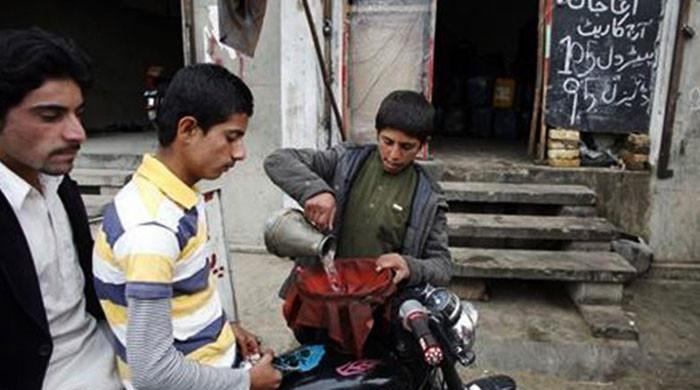- Gwadar Commissioner Confirm travel suspension, fuel movement.
- The situation worsens quickly through the divisions of Makran and Chagai.
- Exaggerated by those who oppose the prohibition of smuggling fuel, says the government.
Quetta: Iran’s continuous armed conflict with Israel has had critical repercussions in the Baluchistan province of neighbor Pakistan, where a fuel crisis throughout the province is developing with an alarming speed, The news He reported Monday.
From the provincial capital Quetta to Tobat, Panjgur, Gwadar and Chagai, gasoline bombs are closing, essential supplies are stuck and the wheels of daily life stop.
In Quetta, more than 70% of the service stations have already closed, with long and chaotic tails formed in the few that remain operational. Panic is spreading as fuel shortages are deepened, and there are fears that in the next 24 hours, all gasoline pumps in the city could stop operating completely.
However, the crisis is not limited to Quetta, since the situation worsens a higher rate in the divisions of Makran and Chagai.
The Baluchistan government has sealed all border crossings with IR will indefinitely, including critical trade and fuel routes in Tobat, Panjgur, Gwadar and Chagai.
The decision, taken in light of increasing regional security threats, has cut the main Iranian gasoline supply of the province, which meets Baluchistan’s fuel demand.
In Chagai, the authorities have confirmed the closure of border crossings in Mashkel, a key commercial route with Iran. Similar to Makran, the border closure has triggered fuel shortage and has interrupted the supply of essential goods in the cities and towns of the region.
Gwadar’s deputy commissioner confirmed the immediate suspension of the travel and fuel movement across the border of Gabad-Kalatuk, while the Panjgur authorities have applied a complete closure of pedestrian and fuel crosses with Iran.
“Given the growing safety risks and the volatile international situation, these are essential precautionary measures,” said the Panjgur administration.
The crisis has been squeezing its grip for weeks. In Quetta, all mini gasoline pumps that sell Iranian fuel have already been closed during the last two weeks after government repressions. Similar closures and supply interruptions are now reported in the Mashkel de Chagai region, where communities depend for a long time on cross -border trade face a serious transport paralysis.
However, the Baluchistan government argues that there is no emergency of fuel throughout the province. Government spokesman Shahid Rind dismissed fuel shortage as “a false narrative extended by gas smugglers.” He said that Iranian service stations are safety risks, citing 28 fuel -related accidents in Quetta in the last month, including incidents at the Road airport and in the Hazar Ganji area.
“These so -called shortages are being exaggerated by those who wish to lift the prohibition of Iranian smuggling fuel,” said Rind, added that strict measures were being taken to guarantee the supply of legal gasoline through registered bombs.
Gasoline stations found that hoarding or rejection service will face immediate legal consequences, he warned.
However, land reports have a drastically different reality. In cities, border cities and remote areas throughout the province, including Quetta, Gwadar, Panjgur, Tobat and Chagai, gasoline bombs have dried, long lines persist and fears are increasing that the fuel crunch could soon take the entire province to a stop.
The international crisis that grows rapidly between Iran and Israel is no longer a distant geopolitical problem: its direct consequences are closing the streets of Baluchistan, freezing their markets and blocking their borders.
The local administrations of Gwadar, Panjgur and Chagai have warned the residents that limit unnecessary trips and cooperate completely with the authorities during this critical period. Officials have declared that cross -border restrictions will remain in place until the security situation stabilizes.
As Baluchistan departs to deepen the shortage of fuel, harden border controls and the propagation of panic, its people are now trapped between strict safety repressions, economic paralysis and a supply of essential goods that is quickly shrunk.
In the midst of the development situation in Baluchistan, Federal Minister of Petroleum Ali Pervaiz Malik has refuted rumors and reports on oil scarcity in the country.
The minister has said that Pakistan has reserves of oil derived products.




